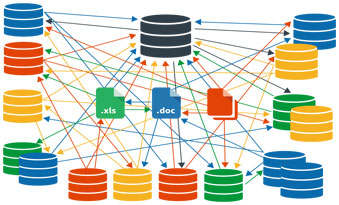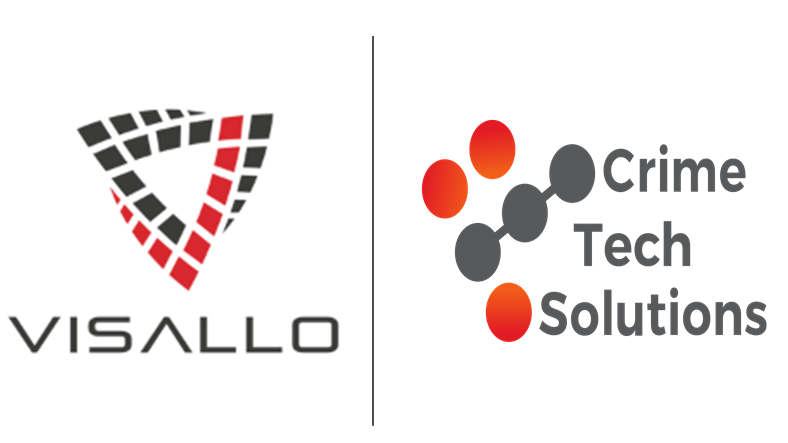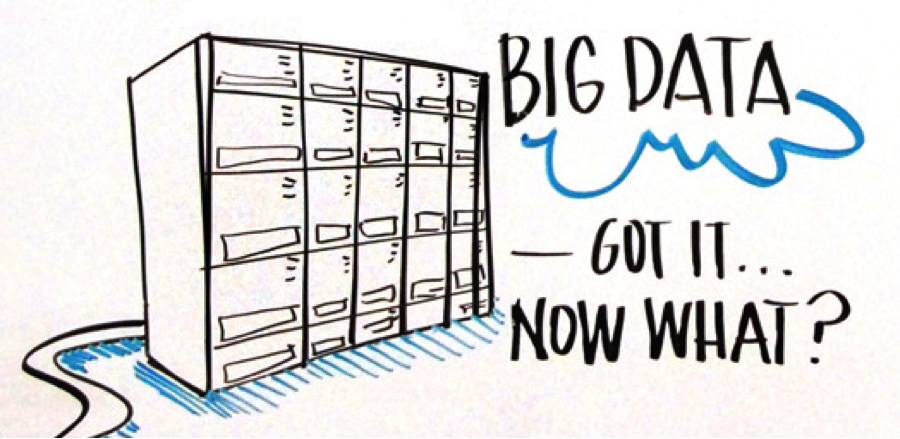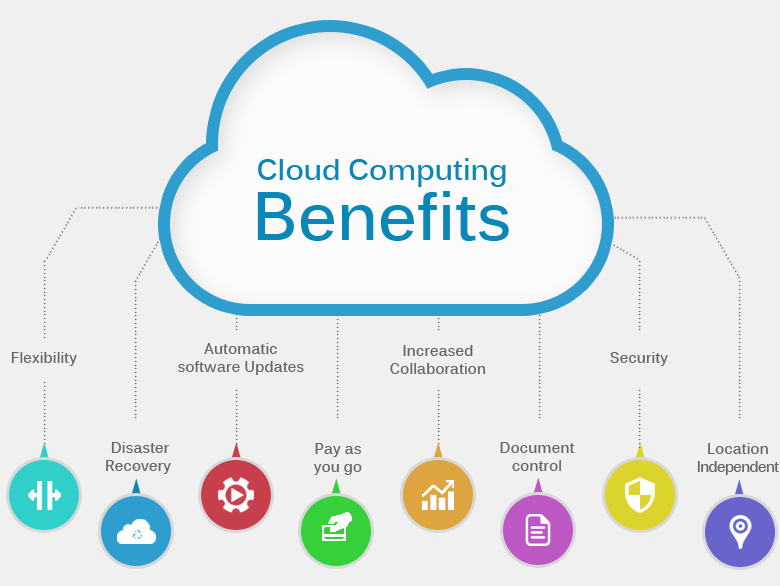Sponsored by Case Closed Software, this 25 minute video features author and former law enforcement official Daniel McDevitt as he overviews some of the best practices developed over his 40+ year career in criminal investigations.
Daniel is the author of Managing The Investigation Unit, and Major Case Management, and is recognized across the country as a leading expert in this field.
Grab a coffee, sit back, and watch the video HERE on YouTube.
Tag Archives: investigation software
Investigative Link Analysis: Consider the Source
Posted by Tyler Wood, Operations Manager at Case Closed Software and Crime Tech Solutions
Investigative link analysis and visualization software is a powerful tool for both law enforcement agencies and the private sector investigators alike. It allows investigators to visualize the hidden, non-obvious connections that would likely otherwise go undetected. After all, we know that the human brain is much more easily able to make connections when information is presented via images rather than text.

The software does, however, need a human to tell it what to look for, and where to look for it. Information is visualized in link analysis software by importing or querying a set of data, and then organizing that data according to parameters set by an investigator. The investigator is responsible for telling the software how to organize the data, and where to gather it from.

A smart investigator will utilize multiple sources when visualizing software. The majority of the time, not all the information needed for an investigation will come from the same source.
Law Enforcement investigators may need to pull RMS data, cell phone records, case management records, and even third party data, etc, to fully understand the big picture in a scenario. By using link analysis to cross-reference these data clusters against each other, the investigator is able to see even more connections, and find even more relevant data that may be crucial in solving a case.
It is important for investigators to exhaust all their resources so they can paint the clearest picture possible. This marriage of intuition and technology ensures that no connections stay hidden from investigation.
The key, as in all of life, is considering the source.
Contact us for more information about how powerful investigation big data link analysis can help your agency today.
[contact-form][contact-field label=”Name” type=”name” required=”1″ /][contact-field label=”Email” type=”email” required=”1″ /][contact-field label=”Website” type=”url” /][contact-field label=”Comment” type=”textarea” required=”1″ /][/contact-form]
Must Read: The Rise of Big Data Policing
 Here’s an excellent, must-read article from Andrew Guthrie Ferguson, a Professor of Law at the UDC David A. Clarke School of Law and author of the book The Rise of Big Data Policing: Surveillance, Race, and the Future of Law Enforcement (NYU Press 2017).
Here’s an excellent, must-read article from Andrew Guthrie Ferguson, a Professor of Law at the UDC David A. Clarke School of Law and author of the book The Rise of Big Data Policing: Surveillance, Race, and the Future of Law Enforcement (NYU Press 2017).
“The big data policing revolution has arrived. The singular insight of this innovation is that data-driven predictive technologies can identify and forecast risk for the future. Risk identification is also the goal of this book — to forecast the potential problems of big data policing as it reshapes law enforcement.”
Read the full article HERE.
In the meantime,  Case Closed Software™ reminds you that, as the only true alternative to Palantir®, we specialize in big data investigation analytics combined with the industry’s most robust investigative case management solution.
Case Closed Software™ reminds you that, as the only true alternative to Palantir®, we specialize in big data investigation analytics combined with the industry’s most robust investigative case management solution.
We are “Palantir® without the price tag and data-lock”.
Contact us for more information below:
[contact-form][contact-field label=”Name” type=”name” required=”1″ /][contact-field label=”Email” type=”email” required=”1″ /][contact-field label=”Website” type=”url” /][contact-field label=”Comment” type=”textarea” required=”1″ /][/contact-form]
Big Data Surveillance: The Case of Policing
Posted by Douglas Wood, CEO of Case Closed Software – a leader in investigation software and analytics for law enforcement.
Headquartered here in Central Texas, I recently had an opportunity to have coffee with Dr. Sarah Brayne, Assistant Professor, Department of Sociology at The University of Texas at Austin. Ms. Brayne had just published an interesting article in The American Sociological Review. The article is titled Big Data Surveillance: The Case of Policing.
The article examines the intersection of two emerging developments: the increase in surveillance and the massive exploration of “big data.” Drawing on observations and interviews conducted within the Los Angeles Police Department, Sarah offers an empirical account of how the adoption of big data analytics does—and does not—transform police surveillance practices.
She argues that the adoption of big data analytics facilitates may amplify previous surveillance practices, and outlines the following findings:
- Discretionary assessments of risk are supplemented and quantified using risk scores.
- Data tends to be used for predictive, rather than reactive or explanatory, purposes. (Here, Crime Tech Weekly would want to differentiate between predictive analytics and investigation analytics)
- The proliferation of automatic alert systems makes it possible to systematically surveil an unprecedentedly large number of people.
- The threshold for inclusion in law enforcement databases (gang databases, criminal intelligence data, etc) is lower, now including individuals who have not had direct police contact. (Here again, Crime Tech Weekly would point out that adherence to criminal intelligence best practices vastly reduces this likelihood)
- Previously separate data systems are merged, facilitating the spread of surveillance into a wide range of institutions.
Based on these findings, Sarah develops a theoretical model of big data surveillance that can be applied to institutional domains beyond the criminal justice system. Finally, she highlights the social consequences of big data surveillance for law and social inequality.
The full PDF report can be downloaded via Sage Publishing by clicking here. Or, if you have general comments or questions and do not wish to download the full version, please feel free to contact us through the form below. Crime Tech Weekly will be happy to weigh in.
[contact-form][contact-field label=”Name” type=”name” required=”1″ /][contact-field label=”Email” type=”email” required=”1″ /][contact-field label=”Website” type=”url” /][contact-field label=”Comment” type=”textarea” required=”1″ /][/contact-form]
The benefits of investigation case management software
You needn’t be a criminal investigator for particularly long before beginning to feel overwhelmed. Even the most seasoned detectives can be torn between competing priorities such as internal briefings, public scrutiny, phone calls, emails, and the general business that police officers experience every day.
Causing even more grief – and consuming additional time and resources – are the routine tasks of managing investigation case files, documents, interviews, supplemental reports, as well as preparing for DA meetings, court dates, and so on. The manual effort of attempting to locate specific pieces of evidence or paper documents, and then trying to determine how they fit together and disseminating the conclusions is massive.
Managing a criminal investigation becomes more and more difficult each day, given the sheer amount of information generated. Evidence and clues must be garnered from things such as call detail records, body cam video, crime scene photos, arrest records, calls for service data, search warrant results, physical evidence management, and so on… and they all combine to make management of individual cases nearly impossible without the appropriate resources
In an era where senior law enforcement officials are being asked to do ‘more’ with ‘less’, however, those resources can rarely come by way of additional staff. Instead, there are technology solutions, thankfully, that ease the pain that lies in the process of managing criminal investigations.
Investigation Case Management Software (ICMS) such as Case Closed Software provides investigation units with a solution that reduces the paper chase, keeps everything in order, and helps investigators close more cases, more quickly. Case Closed is also available via the cloud with Case Closed Cloud.
From a resource utilization perspective, effective ICMS automates the time-consuming tasks of:
- Storing and retrieving documents such as witness statements, complaints, and supplemental reports
- Locating and managing important audio and video files
- Tracking physical evidence
- Effectively communicating with counterparts
- Keeping up with assigned tasks
- Managing incoming tips and leads
- Developing and understanding connections across incidents and cases
- And much, much more.
From a productivity perspective, the benefits are also wide and varied:
- ICMS saves everything in real time. Detectives never have to worry about losing important documents.
- Allows case data to be entered anywhere – in the office, in the field, or at home.
- Makes everything searchable. People. Places. Things… everything is cross-indexed and easily ‘findable’.
- Provides real-time alerts to notify agents when and if information matches something already in the system.
- Generates standard reports with a few keystrokes based on information in the system.
- Easy preparation for internal status update meetings.
- Allows investigators to share case files internally – or externally to the DA.
- Etcetera, etcetera, etcetera!
Many agencies are still operating investigations on paper files or antiquated, unfriendly systems because they believe the cost of implementing ICMS is prohibitive. Nothing could be further from the truth. The cost of effective software is now well within reach of the vast majority of law enforcement agencies. More importantly, the benefits far outweigh these costs.
Spend less. Solve more cases. Case Closed Software. Download a free brochure.
Visallo and Crime Tech Solutions: Partners in Crime-Fighting Software
Sterling, VA (August 24, 2017) – Visallo, the Sterling, VA based provider of investigation analytics software, and only true competitor to Silicon Valley giant Palantir, today announced a strategic partnership with Crime Tech Solutions out of Leander, TX.
 According to Jeff Kunkle, President of Visallo, the partnership enhances his company’s suite of easy-to-use, web-based data visualization tools for investigative link analysis, data discovery, crime analytics and geospatial analysis with Crime Tech Solutions’ powerful and flexible Case Closed investigation case management software.
According to Jeff Kunkle, President of Visallo, the partnership enhances his company’s suite of easy-to-use, web-based data visualization tools for investigative link analysis, data discovery, crime analytics and geospatial analysis with Crime Tech Solutions’ powerful and flexible Case Closed investigation case management software.
“Visallo is designed for intelligence analysts, law enforcement investigators, and fraud analysts who need easy to use tools to help them discover and visualize complex relationships within vast amounts of data without resorting to time-consuming, ad-hoc, and error-prone manual processes,” said Mr. Kunkle. “These are analysts that want to make sure they don’t miss important non-obvious insights during their investigations, want to produce more accurate, thorough, and defensible conclusions, and ultimately seek to be more accomplished investigators able to tackle the toughest cases.”
Tyler Wood, VP of Operations at Crime Tech Solutions added, “Where Visallo does much of the big data analytics, the Case Closed software is specifically designed for investigative process and major case management. The software manages the entire investigation workflow from start to finish and includes functionality such as task management, alerting, communications, evidence management, and a great deal more.”
Until now, investigative agencies had to turn to multi-million dollar solutions from behemoth multinational companies for this combined functionality. The partnership is designed to give customers more investigation functionality at a price point that can scale down to smaller groups. “For years, only the largest law enforcement and federal agencies could afford to purchase these types of advanced tools,” added Mr. Kunkle. “The partnership between Visallo and Crime Tech Solutions changes that reality.”
The companies have indicated that integration efforts are already underway to ensure a seamless and user-friendly experience.
About Visallo
Visallo helps investigators of all types produce more accurate, thorough, and timely analysis with a software platform to help them discover, visualize, and understand complex relationships hidden in massive amounts of data. Visallo’s all-in-one suite of easy-to-use, web-based, visualization tools and machine learning data analysis algorithms augment the investigator’s hard-earned experience and intuition with data-driven insights that would be difficult, if not impossible, to discover otherwise.
About Crime Tech Solutions
Crime Tech Solutions develops and markets a robust suite of powerful software solutions designed for intelligence and investigation teams. Their flagship products include the popular Case Closed™ investigation platform and IntelNexus™, an advanced criminal intelligence management software.
Save a tree… Go digital for investigation case management!

 Posted by Tyler Wood, Director of Operations at Case Closed Software.
Posted by Tyler Wood, Director of Operations at Case Closed Software.
Investigation Case Management (ICM) and Major Case Management (MCM) for law enforcement have always required a great deal of effort. Keeping track of every lead, every record, every relevant piece of information always takes time and manpower. Especially if the agency is stuck using paper-based files, cluttered file cabinets, and disorganized evidence rooms.
Modern case management technology allows the complex task of filing and organizing to be done in a simple piece of software, allowing the job to be done more quickly and with less risk of error. Unfortunately, many law enforcement agencies today are still using the traditional method of case management, even though a software approach has several distinct advantages:
Simplicity. Managing all the relevant paperwork and information for criminal investigations is labor intensive and susceptible to human error. A person must file all documentation such as witness reports, suspect information, crime scene reports, etc… into a file cabinet to be retrieved manually when needed. This creates a likelihood that something will eventually be placed in the wrong folder and an investigation could be weakened or compromised. A powerful case management software, however, will store all this data electronically on a central database. Data is able to be searched for and retrieved instantaneously by any authorized investigator. This streamlines the investigation process and makes document filing safer and less prone to error.
Cross-referencing. Paper copies of data, obviously, cannot be automatically searched through. If evidence from Investigation A happens to also be relevant to Investigation B, then with a traditional filing system and investigator would have to recall that information from memory then physically search through the files in order to find the relevant data. An electronic system will come with a powerful search function and the ability to cross reference against other investigation files with the click of a button. This allows law enforcement to more quickly gather relevant data.
In addition, law enforcement can also instantly share data between agencies. The sharing of data across agencies makes law enforcement across the nation more effective. Cross-referencing is a very important feature to have, especially when dealing with gangs and other organized crime in which evidence may be spread out among several related suspects.

Control. Using a secure electronic case management system, a supervisor can know exactly who accessed which data at what time. They can limit access to certain investigators in order to keep prying eyes out of the files. These features let supervisors rest easy knowing that their case files are kept digitally under their control.
Law enforcement agencies in the 21st century cannot afford to live in the past as far as case management goes. The convenience, simplicity, powerful features, and security of an electronic case management system is invaluable to investigators across the globe. In a world where criminals are becoming increasingly reliant on cutting edge technology, law enforcement must also make use of technology to make sure they are combating crime as effectively as possible. The case is closed on that discussion.
For information on our feature-rich and affordable ICM and MCM technologies, please visit Case Closed Software.
Big Data Investigation Analytics: A Difference Maker for Law Enforcement
How Investigative Agencies do More with Less!
The investigative units of law enforcement agencies all around the world face many of the same challenges. Chief among those challenges is the fact that budgets are tightening, while resources are becoming more and more scarce. Even in the face of reduced funding, investigators are asked to deliver higher levels of service in their quest to solve and deter crime.
The key to doing ‘more’ with ‘less’ in law enforcement is really no different than in any other industry. That is, deploying resources in the most effective manner possible for the maximum value possible. The trick is using what the agency already knows to determine what the future may hold. What that all boils down to is Big Data Investigation Analytics.
Data in Law Enforcement comes in many forms, and is typically stored in disparate silos. Arrest records, calls for service, criminal intelligence, field reports, human resource data, telephone records, case management files, and so on. Together, the data from those systems can represent a virtual goldmine of investigative information if used correctly.
 ‘Correctly’ is the operative term, of course. The ability to turn these large data stores into actionable investigation intelligence requires more than a simple data warehouse or data mining tool, and for the most part police departments recognize this need. They understand that their data holds the key to understanding the hidden connections between people, places, and things – the lynchpin of any successful investigation.
‘Correctly’ is the operative term, of course. The ability to turn these large data stores into actionable investigation intelligence requires more than a simple data warehouse or data mining tool, and for the most part police departments recognize this need. They understand that their data holds the key to understanding the hidden connections between people, places, and things – the lynchpin of any successful investigation.
For years, law enforcement agencies and commercial organizations have built data mining tools and data warehouses. Unfortunately, these analytical techniques are no longer sufficient in an age of rapidly growing data. Moreover, much of the data that investigators need to access is unstructured text – word processing documents, narratives, search warrants, witness statements, email text, and more. By applying big data text analytics, investigators can begin to extract actionable insights from both structured and unstructured data.
 Big Data Investigation Analytics – such as those provided by Virginia based Visallo and California’s Palantir Technologies – are two examples that provide a powerful indexing architecture allowing investigators to find non-textual data, including multimedia files such as 911 calls, interrogation videos, and images. This architecture helps investigators find things that they simply could not find otherwise.
Big Data Investigation Analytics – such as those provided by Virginia based Visallo and California’s Palantir Technologies – are two examples that provide a powerful indexing architecture allowing investigators to find non-textual data, including multimedia files such as 911 calls, interrogation videos, and images. This architecture helps investigators find things that they simply could not find otherwise.
Finally, world-class investigation analytics provide a flexible graph visualization tool, as well. This user interface allows investigators to organize data through a variety of layout options, find hidden and non-obvious relationships between entities, and perform a variety of what-if scenarios.
 When paired with the robust investigative case management and criminal intelligence systems available from Crime Tech Solutions, big data investigation analytics build a foundation upon which investigators can solve more crimes, more quickly.
When paired with the robust investigative case management and criminal intelligence systems available from Crime Tech Solutions, big data investigation analytics build a foundation upon which investigators can solve more crimes, more quickly.
Without advanced investigation analytics, agencies often find themselves looking for a needle in a haystack. In fact, too often the needle is broken into several pieces spread across multiple haystacks. To simplify these tasks, investigative agencies must deploy the correct analytical technologies which have become a key element of doing more with less in the global investigation market. For more information on how Crime Tech Solutions and Visallo are changing the law enforcement analytics landscape, please contact us below!
[contact-form][contact-field label=”Name” type=”name” required=”1″ /][contact-field label=”Email” type=”email” required=”1″ /][contact-field label=”Website” type=”url” /][contact-field label=”Comment” type=”textarea” required=”1″ /][/contact-form]
Palantir® and NYPD face off over data and deliverables disputes
The shine is most definitely coming off the Palantir® Technologies brand in law enforcement and investigative agencies. Here’s a link to a fascinating story about NYPD and Palantir, and how the former is kicking the latter to the curb. The power that Palantir has over its customers is down-right frightening.
Fear not, Palantir clients… Something big is happening HERE!

The Sunny Side of Cloud-Based Solutions
 Cloud computing for law enforcement, in simple terms, refers to software hosted off-agency and available to the user through their internet connection. This type of software-as-a-service, or “SaaS” offers several advantages over software that is hosted locally on the user’s hardware.
Cloud computing for law enforcement, in simple terms, refers to software hosted off-agency and available to the user through their internet connection. This type of software-as-a-service, or “SaaS” offers several advantages over software that is hosted locally on the user’s hardware.
Computer hardware is always being tweaked and improved upon, and state-of-the-art equipment can become obsolete extremely quickly in this environment. Many vital pieces of software that law enforcement rely on can be extremely demanding of hardware resources. With cloud-based software solutions, the software and the hardware required to run it are maintained offsite. The agency users simply access the software through an internet browser on a computer or smart phone, and have access to all the functionality of the software with none of the costs or hassle involved in hosting locally. These costs also include maintenance and security.
Cloud-based solutions such as Case Closed Cloud also allow for software to be more portable, as the software can be easily and readily accessed by any user with a smart phone. In addition, compatibility across platforms becomes less of an issue, as the software only needs an internet browser to function. This means law enforcement officials can seamlessly move from using a MacBook at work, to their Windows Phone at lunch, to a Linux based PC at home, without having three separate installs with varying functionality.
 There are some things to look out for. While having software and hardware off-site offers great advantages, it’s important to note that data is hosted off-site as well. It’s important to carefully navigate the terms of use and make certain that the agency is not signing away the rights to important, classified, or proprietary data.
There are some things to look out for. While having software and hardware off-site offers great advantages, it’s important to note that data is hosted off-site as well. It’s important to carefully navigate the terms of use and make certain that the agency is not signing away the rights to important, classified, or proprietary data.
Still, the major advantages of cloud-based software make it a powerful and very accessible tool for law enforcement. The simplicity and ease of access are defining characteristics of the cloud-based revolution.



